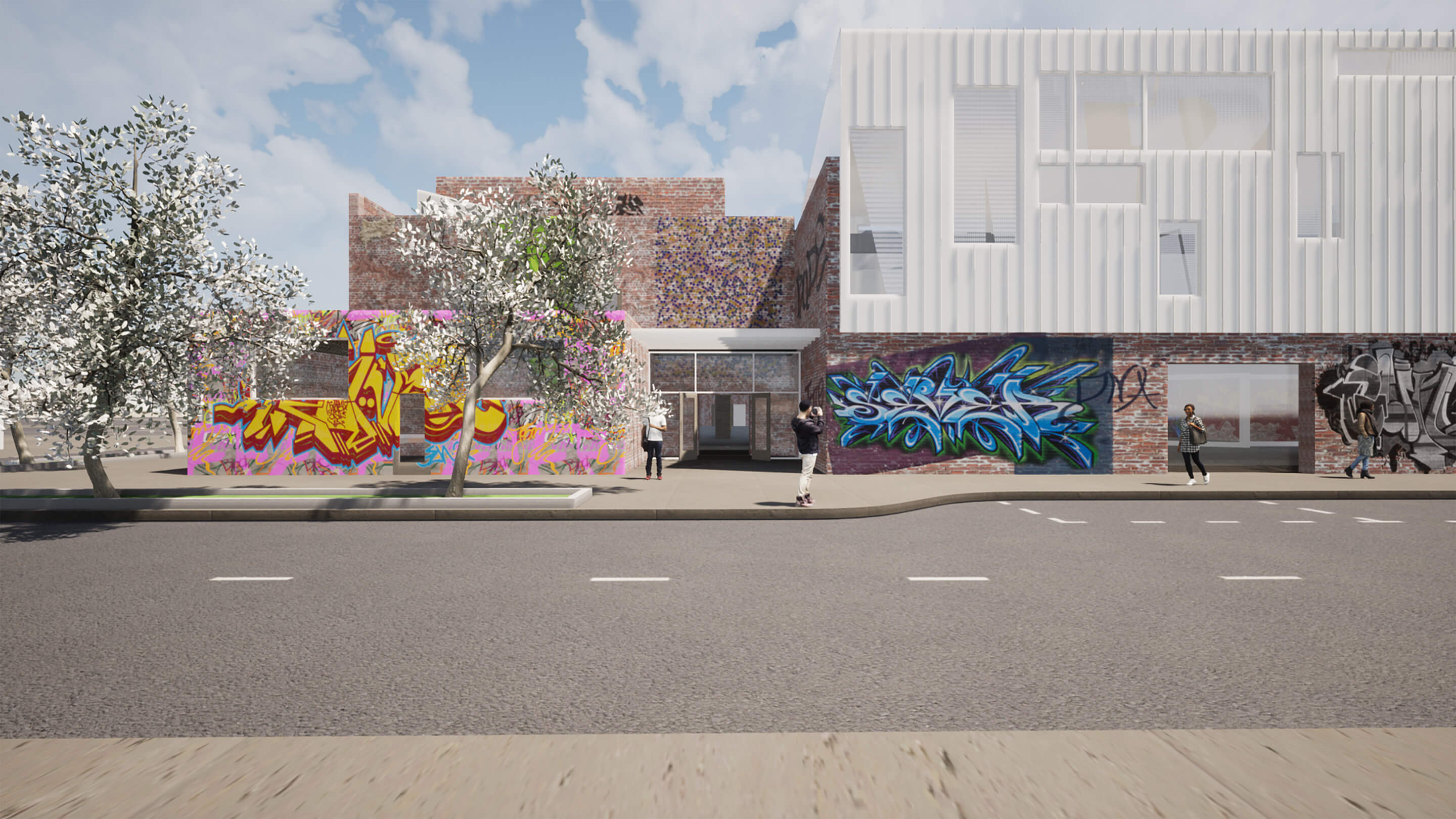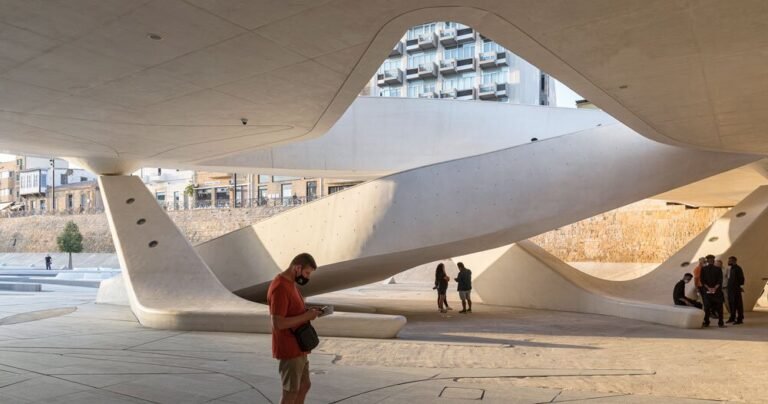Sekou Cooke has received accolades as a curator and theorist however sees constructing as the perfect testbed
This article is part of our series of profiles on the Architectural League of New York’s 2022 Emerging Voices winners. The full list can be found here.
Azra Akšamija and sekou cooke STUDIO will present on their respective work on March 31 at 6:30 P.M. and more information can be found here.
Sekou Cooke is best known as a curator and theorist of Hip Hop Architecture, which he first encountered as a student at Cornell in the mid-1990s. Two years before Cooke started his undergrad studies, Nate Williams had been turning the lecture hall into a party space with a DJ live mixing before his presentations. In 2014, while pursuing his master’s degree at Harvard, Cooke published a seminal essay called “The Fifth Pillar: A Case for Hip Hop Architecture” in The Harvard Journal of African American Planning Policy.
“In that essay I was really just trying to make a singular case for positioning architecture within the realm of all the hip hop elements and saying that it can be a viable product of hip hop culture,” Cooke told AN. “It really was supposed to be a one-off thing, like, ‘okay I’m doing this, I’ve got the ideas out of my head, it’s out, now I can move on with my life.’”
The world, however, had other plans for Cooke. ArchDaily picked up the essay, it garnered a lot of national attention, and soon Cooke was hearing from others who had been writing about the topic. That correspondence led to a 2015 symposium at Syracuse University, where Cooke was teaching. Next came Close To The Edge: The Birth of Hip Hop Architecture, an exhibition that premiered at the AIANY Center for Architecture in 2018, and, most recently, a book titled Hip Hop Architecture (Monograph 2021).

Today, the Jamaican-born Cooke is the director of the urban design program at UNC Charlotte and continues to run his eponymous studio, which he founded in 2008. His notable built work includes the Eat To Live Food CO-OP (2013) in Syracuse, and Grids + Griots, a community space made from a chopped up shipping container that was originally commissioned for the 2021 Chicago Architecture Biennial. Moving forward, Cooke said he hopes to work for more progressive, well-funded non-profits and move his projects through construction, which he sees as the ultimate testbed for architecture.
“I’m not a hip hop architect, I’m not even a Black architect, I’m an architect and primarily I want to identify as an architect” Cooke said. “To me that means someone who is capable of developing really complex ideas and getting them built and tested in the real world.”



